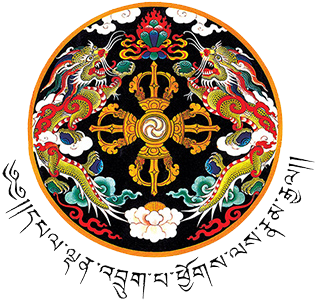Background
Trashigang Dzongkhag farming environment stretches from the humid subtropical to the cool alpine climatic zones and engages more than 69% of the total population. Although the environment is favorable to growing crops round the year, production is low to meet the requirements of the increasing population. The arable land is around 9% of the total geographic area out of which 13% is irrigated and more than 86% is under rain fed or dry land cultivation. Maize, soya beans and beans are major crops while important cash crops include potato, vegetables and citrus. These crops have the potential to be cultivated on a commercial scale through the introduction of good agronomic practices and high yielding varieties. Maize is grown in all the gewogs in huge quantities about 9, 974 metric tons (RNR Statistics, 2012) and potential exists for establishing collection centers for maize and setting up of maize product processing units. There is also a key challenge, particularly the highest migration loss of 16, 697 persons (PHCB, 2005). The rural urban migration has resulted in agricultural land being kept fallow and farm labour shortages leading to low agricultural productivity. Coping with crop damages by wild life, frequent droughts, pests and diseases outbreaks, etc. are some of the main challenges in enhancing our agriculture productivity.
Objectives
The key objectives of the 11th Plan (2013 to 2018) is to i) Enhance food and nutrition security, ii) Improve Rural Livelihood, iii) Accelerate and sustain RNR sector growth and iv) Provide sustainable management and utilization of natural resources by the end of the plan period. Agriculture crops production has an important role to play in meeting these objectives.
Programs
There are five programs identified for the Agriculture Sector of Trashigang Dzongkhag in the plan period with a total budget provision of Nu.55.151 million. These programs are aimed to ensure food security and increase income through proper utilization of existing fallow land, improved management of arable, cereal crops, cash crops and vegetables. Access to better production, market facilities, infrastructure development (roads), irrigation development, extension and support services are some of the means prioritized.
Policy support & coordination
Agriculture Sector is one of the biggest sectors under the Renewable Natural Resources (RNR) Sector with total staff strength of more than 20 personnel. The sector reaches out to clients through a network of Extension, Research and Central program offices established at strategic locations within and outside the dzongkhag, taking services closer to the clients. At the policy and coordination, the sector comprises of Dzongkhag Agriculture Officer (DAO), Assistant Dzongkhag Agriculture Officer (ADAO), and Data Management Unit including Mushroom Focal Person at the Dzongkhag Headquarter.
Extension services
The Agriculture Sector has deployed four Senior Extension Supervisors (Sr. ES II & III) and 12 Extension Supervisors (ES I & II) in the 15 Gewogs (Blocks). There is more than 20 agriculture staff in this Dzongkhag to support the farming communities to increase food production and manage local resources. All these agriculture officers technically work with Dzongkhag, Department of Agriculture (DoA), the Research Centers and Central & Regional Programs to provide assistances to address the agriculture production challenges of the local farming communities.
Research & Development Services
The Research and Development Center (RDC) based in Wengkhar, Mongar and Sub Center at Khangma, Trashigang takes up research and technical responsibilities of the Agriculture Development Program in the gewog including extension needs.
Central & Regional Programs
There is only one central program in the Dzongkhag namely the Central Machinery Unit based in Khangma that supports farm road construction. Similarly, there are two regional programs namely Regional Agriculture Marketing Cooperatives Office (RAMCO) based in Gyelpozhing, Mongar and Regional Agriculture Machinery Centre (RAMC) based in Khangma. These Centers provide extension and research services in consultation with Dzongkhag extension system.















